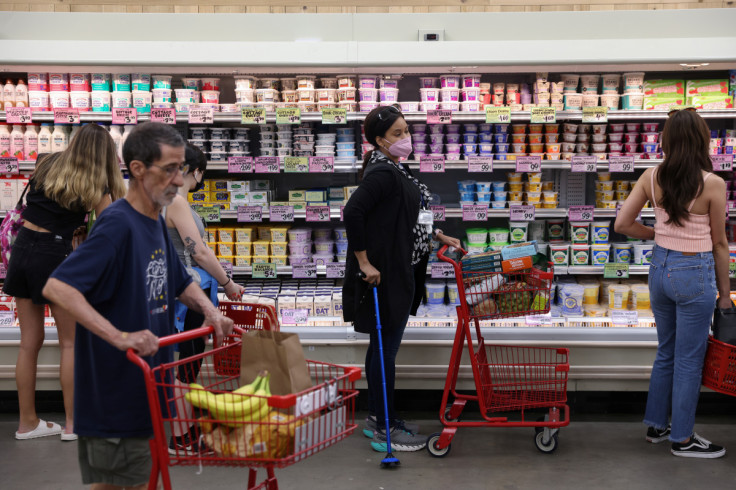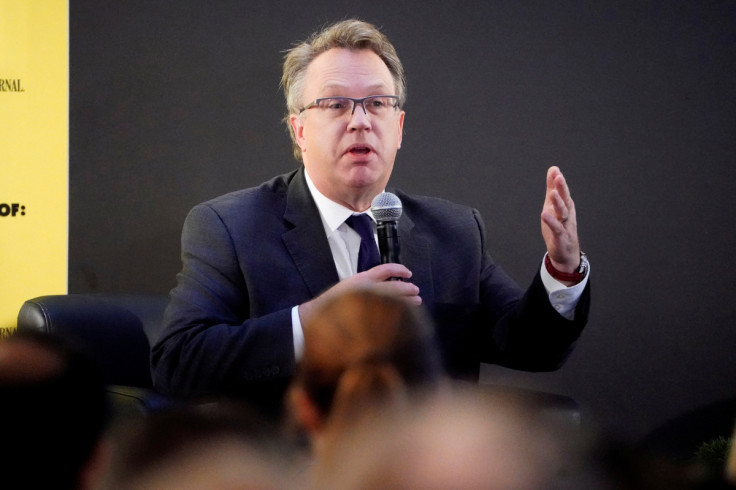Fed's Williams Says More Rate Hikes Needed To Bring Down Inflation

New York Federal Reserve President John Williams said on Friday the U.S. central bank has more work to do to lower inflation and rebalance economic activity in a more sustainable way, and he warned that the unemployment rate will most likely rise as part of that process.
"We need to get interest rates up further and basically get interest rates above where inflation is," Williams said in comments before a gathering held at SUNY Buffalo State in Buffalo, New York. "That will help restrict demand and supply and do so in a way that brings down inflation quickly."
Williams, who also serves as vice chair of the rate-setting Federal Open Market Committee (FOMC), spoke in the wake of the release of employment data that showed the U.S. economy added 263,000 jobs last month versus 315,000 in August. The unemployment rate fell to 3.5% in September from 3.7% in August.
The jobs report bolstered prospects for more aggressive interest rate rises and kept the central bank on track to raise its benchmark overnight interest rate - currently in the 3.00%-3.25% range - by three-quarters of a percentage point at its Nov. 1-2 policy meeting.
The Fed has boosted the federal funds target rate, which it uses to influence the momentum of the economy, from near zero at the beginning of this year, and officials have penciled in increases that will take that rate to around 4.6% by next year.
Williams said the U.S. economy has "a very strong labor market, which is a good thing except for very high inflation," which is being countered by central bank rate rises. He added over time, "you are likely going to see the labor market, you know, maybe not be as strong in terms of the job growth we've been seeing."
He added that there was an economic slowdown underway, especially in the housing market. But he said he doesn't expect the economy to tip over into a contraction, a fear that is common in financial markets.
"I do see positive growth next year" and "I see the unemployment rate coming up somewhat, but most importantly, I see inflation coming down pretty significantly next year," Williams said.
BUSY WEEK
Williams spoke at the end of a busy week for commentary by his fellow central bank policymakers. Williams kicked off the week when he said on Monday the Fed still had some ways to go with rate rises to get high levels of inflation under control. He noted then that while there are some signs overall inflation may be cooling as pandemic-related disruptions ease, overall price pressures remain problematic and will take years to bring back to the Fed's 2% target.
Meanwhile, other officials offered hawkish comments on monetary policy and some said that turbulence in financial markets would not deter them from taking action to lower inflation, which by the Fed's preferred measure is running at more than three times its target.
"I've read some speculation recently that financial stability concerns could possibly lead the FOMC to slow rate increases or halt them earlier than expected," Fed Governor Christopher Waller said on Thursday, adding "let me be clear that this is not something I'm considering or believe to be a very likely development."
Minneapolis Fed President Neel Kashkari said separately on Thursday that he saw no evidence inflation was trending downward in a notable way, adding that he was "not comfortable" saying the central bank was going to pause its rate rises until that happened.

© Copyright Thomson Reuters {{Year}}. All rights reserved.





















